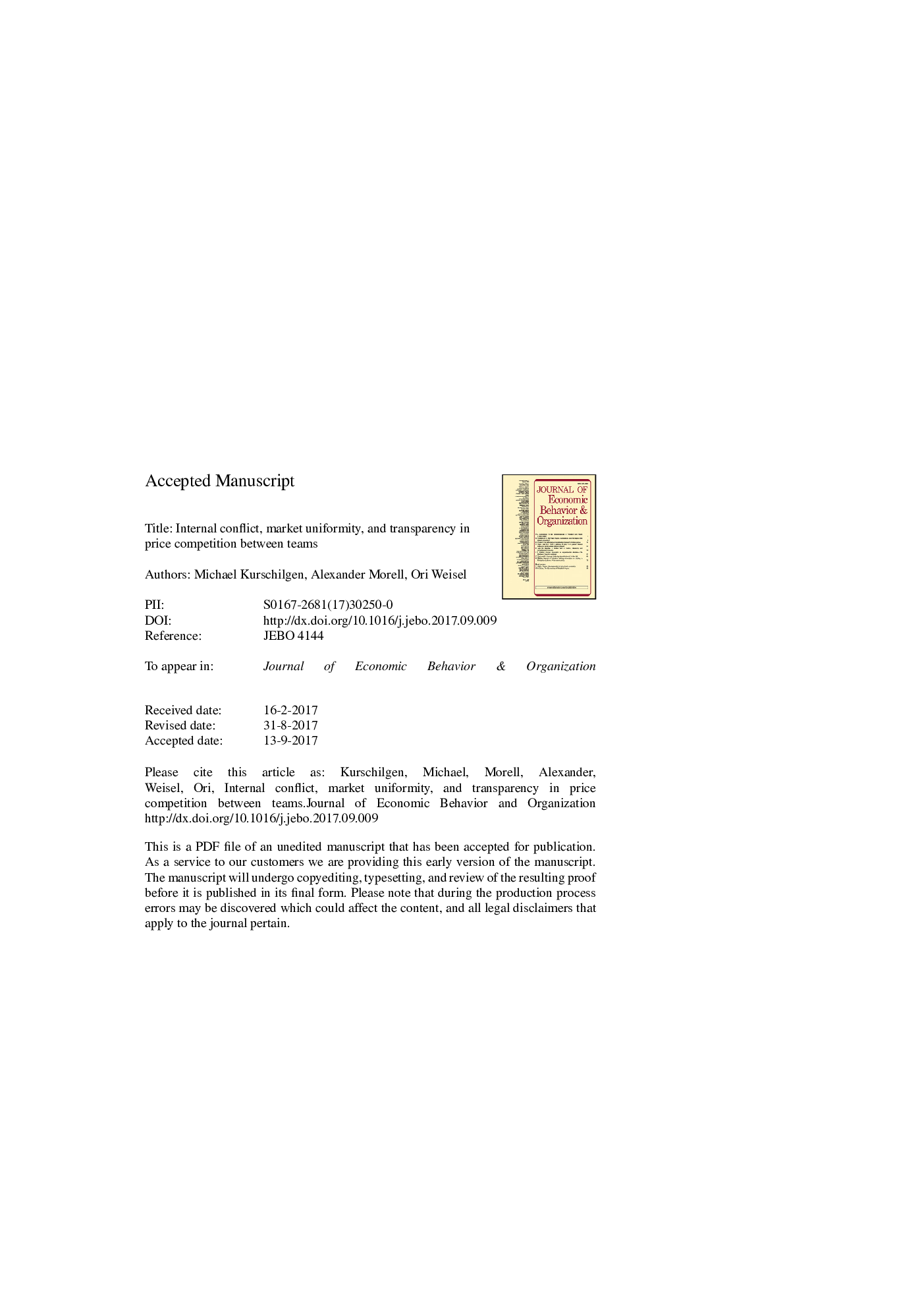| Article ID | Journal | Published Year | Pages | File Type |
|---|---|---|---|---|
| 7242721 | Journal of Economic Behavior & Organization | 2017 | 29 Pages |
Abstract
The way profits are divided within successful teams imposes different degrees of internal conflict. We experimentally examine how the level of internal conflict, and whether such conflict is transparent to other teams, affects teams' ability to compete vis-Ã -vis each other, and, consequently, market outcomes. Participants took part in a repeated Bertrand duopoly game between three-player teams which had either the same or different levels of internal conflict (uniform vs. mixed). Profit division was either private-pay (high conflict; each member received her own asking price) or equal-pay (low conflict; profits were divided equally). We find that internal conflict leads to (tacit) coordination on high prices in uniform private-pay duopolies, but places private-pay teams at a competitive disadvantage in mixed duopolies. Competition is softened by transparency in uniform markets, but intensified in mixed markets. We propose an explanation of the results and discuss implications for managers and policy makers. (D43, L22, C92)
Related Topics
Social Sciences and Humanities
Economics, Econometrics and Finance
Economics and Econometrics
Authors
Michael Kurschilgen, Alexander Morell, Ori Weisel,
